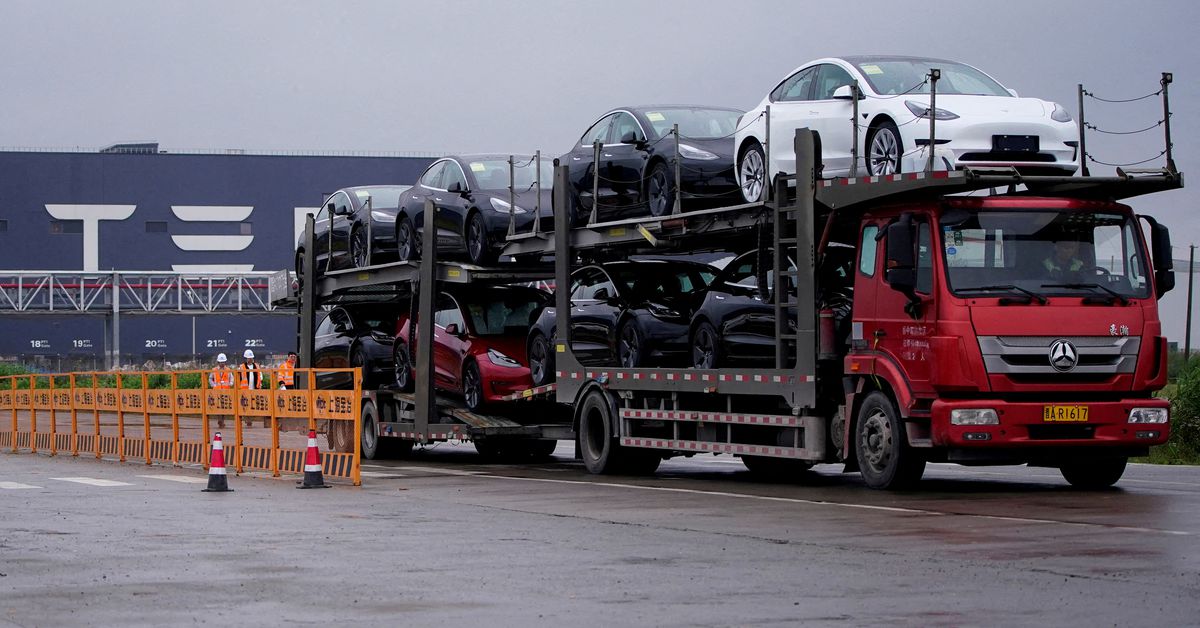A truck transports new Tesla cars at its plant in Shanghai, China, May 13, 2021. REUTERS/Aly Song/File Photo/File Photo
SHANGHAI, April 11 – China’s measures to combat COVID-19 impacted production at its electric vehicle (EV) factories in March, with Tesla Inc (TSLA.O)’s Shanghai operation producing little more cars than in the traditionally slow month from February.
Electric vehicle makers in China overall produced far fewer cars than expected in March due to the pandemic measures, said Cui Dongshu, secretary-general of the China Passenger Car Association, which released data for the period.
While Tesla’s Shanghai factory delivered 16% more cars in March than the previous month, production at 55,462 units was just 154 higher than in February, a shorter month when workers are usually off for the Lunar New Year holiday.
EV makers are selling from inventory to support deliveries, Cui said.
China has imposed strict lockdowns to curb the spread of the highly contagious Omicron variant in several locations – including Jilin province and Shanghai, home to factories of major automakers and their suppliers.
Such measures have disrupted logistics and affected retail sales of cars, the association chief said, adding that automakers were under “tremendous” pressure to keep supplies going.
In January, the Tesla plant in Shanghai produced 68,117 vehicles. Production was suspended for two days in mid-March due to COVID controls. After a brief resumption, work had to be halted again on March 28 due to the lockdown in Shanghai. Continue reading
Total sales of passenger cars in China stood at 1.61 million in March, down 10.9% year-on-year, according to the association.
Chinese EV maker Nio (9866.HK) said on Saturday it halted production after the country’s measures to contain the recent epidemic surge halted operations at its suppliers. Nio shares fell 9% on Monday.
Exports have fallen
The association’s data also showed that Tesla’s Chinese-made car exports plummeted to just 60 units as domestic shipments more than doubled since February.
Cui said Tesla usually exported fewer cars at the end of each quarter to meet accumulated local orders.
In normal times, the Shanghai plant produces 6,000 Model 3 and 10,000 Model Y per week for the Chinese, German and Japanese markets.
Some buyers rushed to place orders ahead of expected further price hikes after Tesla announced price increases in November and March, citing higher raw material costs.
Chinese customers now have to wait five months after ordering a Model 3 and three months for a Model Y, a Tesla sales representative said last week.
Reporting by Zhang Yan and Brenda Goh; Edited by Christopher Cushing and Bradley Perrett

